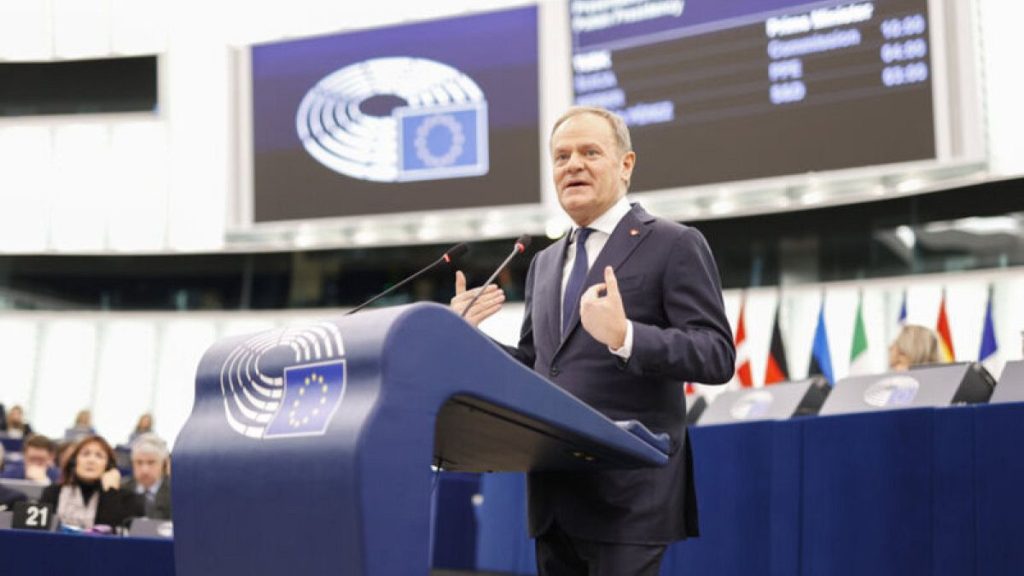Donald Tusk’s address to the European Parliament sparked a flurry of reactions, ranging from cautious applause to outright condemnation, reflecting the deep divisions within the European political landscape. His stance on defense garnered some positive attention, but his criticisms of the Green Deal and his migration policies drew sharp rebukes from various political factions.
Left-leaning MEPs, particularly from the Socialists and Democrats (S&D) group, voiced strong opposition to Tusk’s approach to migration, which they perceive as overly focused on border security and neglecting the principles of solidarity and shared responsibility. They criticized his rejection of the Pact on Migration and Asylum, a landmark agreement aimed at establishing a more equitable and humane migration system within the EU. Poland’s plan to suspend asylum rights and its failure to submit national implementation plans further fueled concerns about the country’s commitment to the EU’s migration framework. The construction of border walls, particularly with EU funding, also drew condemnation, with MEPs emphasizing the need for a more balanced approach that incorporates cooperation with transit and origin countries and respects fundamental human rights.
Tusk’s call for a “critical review” of the Green Deal also sparked controversy. While acknowledging the importance of addressing energy poverty, left-leaning MEPs argued that strengthening the Green Deal, particularly through investments in renewable energy sources, is crucial for achieving genuine energy independence and reducing reliance on external suppliers like Russia or the US. They viewed Tusk’s stance as a step backward in the fight against climate change.
Right-wing factions, including the European Conservatives and Reformists (ECR), Patriots for Europe (PfE), and Europe of Sovereign Nations (ESN), expressed deep distrust of Tusk, primarily focusing on domestic issues within Poland. They accused his government of democratic backsliding and criticized specific policy decisions, such as a gas deal with Russian suppliers and the removal of a Gazprom-linked company from the sanctions list, as undermining his claims of promoting EU independence from Russia. This skepticism underscored the existing political tensions within Poland and the broader European context.
Even on areas of apparent agreement, like the need to reassess certain environmental policies, there were stark differences in approach. While some right-wing MEPs echoed Tusk’s concerns about the Green Deal’s impact on citizens, they demanded more concrete action, including the withdrawal from the revised Emissions Trading System (EU ETS), rather than mere adjustments. This highlighted the divergence in perspectives even within the right-wing spectrum, with some favoring a more radical dismantling of existing environmental regulations.
The extreme-right further amplified the distrust in Tusk, accusing him of dishonesty regarding his migration stance. They pointed to his past voting record, which included opposition to border fence construction, as evidence of inconsistency and a lack of credibility. This highlighted the deep polarization on migration issues, with the extreme-right advocating for even stricter border controls and questioning Tusk’s commitment to their implementation.
In summary, Tusk’s address exposed the fault lines within the European Parliament regarding key issues such as migration, environmental policy, and relations with Russia. Left-leaning groups criticized his approach to migration as overly securitarian and his stance on the Green Deal as regressive. Right-wing factions expressed distrust rooted in domestic political concerns and demanded more radical action on certain policy fronts. The extreme-right amplified the skepticism, questioning Tusk’s sincerity and consistency. These varied reactions underscore the complex political landscape within the EU and the challenges in forging a consensus on critical policy areas.














